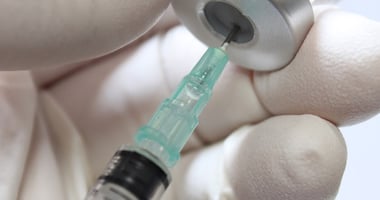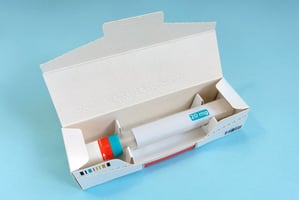Older people with schizophrenia who are treated with long-acting injectable antipsychotics (LAIs)...
Symptoms of Grandiosity May Point to Higher Risk of Relapse on Oral Antipsychotic
 |
“While it is unclear whether this symptom worsening is a predictor of relapse or a part of a relapsing process, this timeline may offer a window for possible interventions in an effort to avert relapses,” wrote Yuta Saito, M.D., of Keio University School of Medicine in Tokyo and colleagues.
These findings come from a secondary analysis of a clinical trial known as PROACTIVE. This trial followed 305 outpatients with schizophrenia taking either biweekly LAI risperidone or daily oral second-generation antipsychotics for up to 30 months. PROACTIVE was conducted in eight clinical centers across the United States and had a primary goal of testing whether LAI risperidone was better than daily antipsychotics at preventing a relapse of schizophrenia symptoms. Researchers assessed schizophrenia symptom severity at the beginning of the study and then every two weeks until the end of the study. For this analysis, Saito and colleagues used that wealth of symptom data to see whether there were any signs that might predict future relapse.
Of the 305 patients in the study, 73 patients (41 receiving LAI risperidone and 32 taking oral antipsychotics) experienced at least one relapse of their schizophrenia symptoms. No individual symptom was associated with relapse in the LAI group; in the oral group, however, a greater initial score in grandiosity was associated with a 43% increased risk of relapse.
Saito and colleagues noted that previous research has shown that grandiosity decreases motivation and medication adherence, which may explain why this symptom increases relapse risk in patients who need to take an antipsychotic every day.
The investigators also found that patients who eventually relapsed were much more likely to experience emotional withdrawal in the weeks prior; significantly elevated emotional withdrawal relative to baseline was observed between two and eight weeks prior to the relapse date.
“[T]hese results point to the value of thorough evaluation of individual symptoms as well as overall symptomatology for relapse prevention among patients with schizophrenia,” Saito and colleagues concluded.
The PROACTIVE trial was funded by NIMH, and the authors reported no external funding for this secondary analysis. Some of the authors have received honoraria, speaker fees, or grants from Janssen, manufacturer of risperidone.
For related information, see the Psychiatric News article “Clozapine, LAI Antipsychotics Found Best at Preventing Relapse.”
(Image: Olimpik/Shutterstock)
Follow Psychiatric News on Twitter!
And check out the new Psychiatric News Brief on Alexa-enabled devices.
And check out the new Psychiatric News Brief on Alexa-enabled devices.





